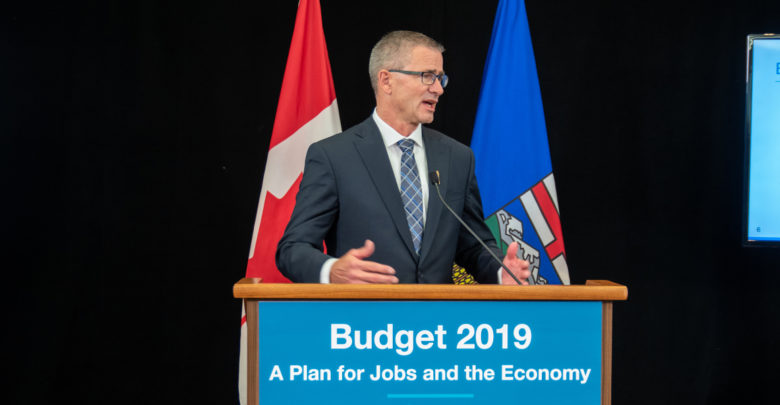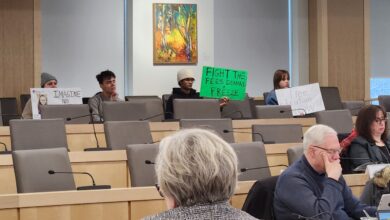 Tina Tai
Tina TaiPure, undiluted dread. This is what I felt the moment I laid eyes on the provincial budget changes by the United Conservative government.
I’m sure you already know the implications of this budget. Over $1600 worth of cuts in individual tax credits alone, an early end to the tuition freeze, and perhaps most shockingly, a 6.9 per cent cut across the board to government funding for the University of Alberta. This isn’t a complete surprise: the UCP campaigned on “[measuring] labour market outcomes of post-secondary programs to identify the correlation between provincial subsidies and economic returns for taxpayers,” and that measuring likely led them to conclude that said returns were supposedly nonexistent.
This budget is bad for students, try as the UCP might to say otherwise. Almost nothing positive has been put forward for us, and yet somehow we’re still giving out corporate tax cuts. The UCP’s steadfast belief in trickle-down economics — a system that operates on giving tax breaks and benefits for corporations that will trickle down to everyone else — seems to be the reason. Given that the wealth disparity in Canada is increasing, it doesn’t seem like trickle-down is actually working.
So what does this mean for students, and how are we going to cope?
Students are already struggling; we see tips and tricks passed around for how to survive as a penniless student, but that isn’t the worst of it. Statistics Canada says that over 40 per cent of students financed their post secondary education with some form of loan, which means that almost half of all students have negative equity.
Some might argue that if you get a job which actually pays, you won’t have to worry about paying off your student loans. In theory, this is decent advice: sell your soul to capitalism to pay off the education for the very job you’re using to pay your loans. Simple enough. But the UCP government is making this harder to do. Though graduates with co-op experience are more likely to have paid off their loans within three years of graduation, the new budget is eliminating the Summer Temporary Employment Program (STEP), making it more difficult to get co-op experience in the first place.
On top of being talked over and ignored, we’re also fighting against the memories of middle-aged adults. School used to be cheaper, and it’s hard for people to imagine a world where their experience is no longer relevant. In Ontario, the inflation adjusted rate of tuition was just $2,574 in 1990-91. With tuition like that, I’d have a lot more freedom financially.
It isn’t the same today. The assumption that the current tuition levels leave us with excess money, and that increases are affordable, just isn’t true. In 2016, Meal Exchange published a study by Silverthorn et al called Hungry For Knowledge. They surveyed students to find out about their ability to access food. They found that about two in five students experienced food insecurity. Maybe some of those students can afford to lose $1600 a year in tax credits, or for the tuition freeze to end early, but it will likely make them worse off.
So some students can’t even eat, corporations are paying less, and Albertans everywhere are feeling the pain of a province too long in recession. The UCP, like any government under scrutiny for their economic decisions, says they’re trying to balance the budget.
Balancing the budget can be a good thing. It means less stress on government coffers, more wiggle room for spending. The problem with this strategy is that it relies almost entirely on the swift bounce-back of oil and gas (which likely won’t happen in the next five years). If that doesn’t happen, the deficit will actually increase. Mere days after doling out billions in corporate tax breaks, finance minister Travis Toews said that Alberta has “a spending problem.” I agree, but the recent cuts feel like the government is sloughing blame onto students, rather than cutting off the corporate money hounds.
The next few years look grim, but there are always ways to curb the damage. Write to your local representatives, call them, protest outside the legislature building, organize a strike. If the UCP government is going to come out swinging like this, we have to as well. What’s more, help your fellow students. If you or someone you know is struggling with food insecurity, the Campus Food Bank is a great resource for you to check out, and there are always grants to apply for.
Don’t be gentle, don’t be sweet. This budget has exactly the kind of “surgical cuts” the UCP warned us about, but they don’t yet know that they hit an artery. If we can’t make them close the wound, then at least we can make a mess for them to clean up.
CORRECTION: A paragraph in a previous version of this editorial incorrectly stated that the UCP laid out no specific details about post-secondary in their platform besides increasing contributions to RESPs. The platform cited was actually the federal Conservative platform on post-secondary, not the UCP’s. The article has been corrected to speak about the specifics in the UCP’s post-secondary platform. The Gateway regrets this error.




